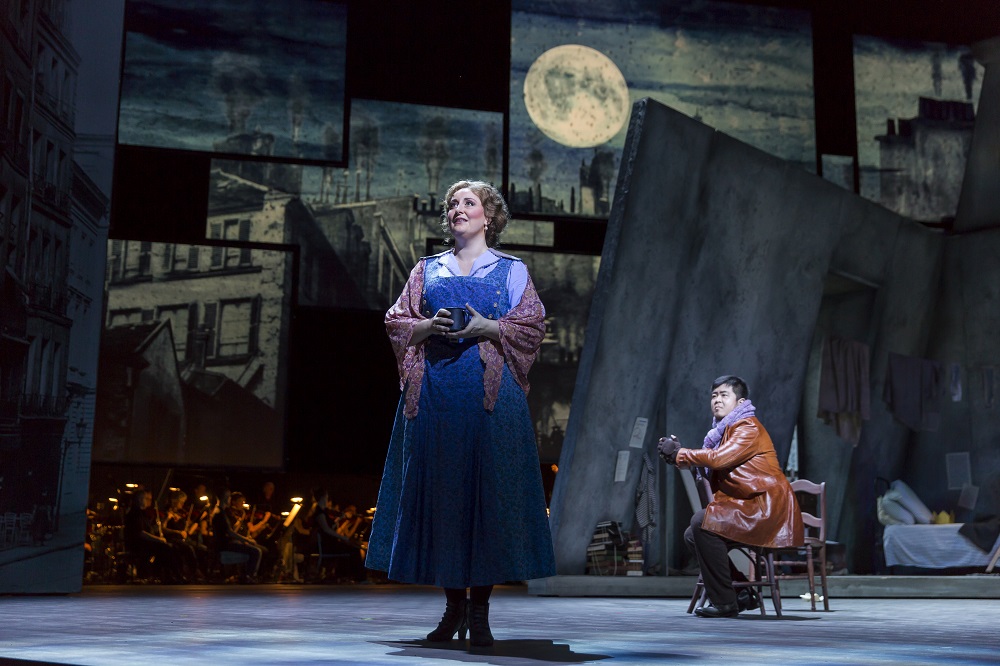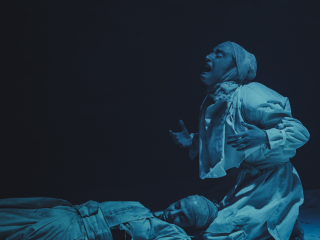So, you’ve found yourself dreaming of being on the opera stage, singing the world’s most beautiful music, irresistibly drawn to the glamour and fame of the title ‘opera singer’, but you’ve never had a voice lesson in your life, and now you’re lost. How do you get from where you are now to singing opera? How do you navigate the years of training it takes to become an olympic-athlete of singing? Where would you even start?!

Whatever stage you’re at in life, learning to sing and perform opera is possible. This guide should point you in the right direction to start on your path into opera.
Kids and young teens
Most opera singers today started singing in their local choirs, at church or school, and performed in all of their school productions, so this is an obvious place to start.
It is possible to take up voice lessons at this age, but be aware that voices take a long time to mature so it might not be right for you yet. Find yourself a good teacher who will teach you to use your own voice well, and create a sound appropriate for your age.
There are lots of opera roles written for children and young teens, so it is possible to start your career at a young age, if this is appropriate for your situation.
Take a look at some of our guides for these great opera roles for children, including: Oberto in Handel’s Alcina , Miles or Flora in Britten’s The Turn of the Screw, and Yniold in Debussy’s Pelleas et Melisande.
Nearly every professional opera company has an education department, and there are often some great opportunities to get involved in a hands-on way, to find out if you really love the opera stage. If you can, get to see more opera live, particularly operas that are geared towards children.
Check out these education programs to see what’s available for children at these opera houses:
Remember that singing opera is much more than just having a good voice, it is also about being able to read music, understand foreign languages, be an excellent musician, and be able to work as part of a team. Belonging to a good choir, learning to play the piano or any other instrument, taking a language class, and learning to dance will all start you on a path towards being an opera singer.
Just a side note on those child prodigy opera singers that you might see on America’s Got Talent, or similar shows: they are not opera singers. Unfortunately, many of them are singing operatic arias, and putting on a fake ‘operatic’ sound. Continuing to produce this sound long-term is unsustainable, and can lead to significant vocal damage. They are also singing music which is inappropriate, and far too mature for them to understand the meaning of. If you’re serious about getting into opera, this is not the way. Please don’t follow these flash-famous ‘superstars’; take the time to put in the work and show your respect for the art-form and the real artists.
Late-teens, twenties: the college years
Firstly, don’t worry if you are already at college, and you’re not majoring in music or anything even remotely related – that’s completely normal! Many singers have degrees in other subjects before continuing to pursue opera, and many find their extra skills help them with finding work to support their singing career.
The important thing right now is to make sure you are working with a good singing teacher who really understands the voice, and has experience teaching opera. You should still be singing things appropriate for your voice at your development stage, and only an experienced teacher will be able to tell you what this is. Remember, it might be a little while before you actually sing any opera arias, as it’s best to wait until your vocal technique is ready.

It’s also worth taking any language classes you have available, particularly Italian, French, German, maybe Russian, and even Czech. Singing in a foreign language is one thing, but really understanding what you are saying, and communicating this to an audience, takes years of language study, so definitely start now. Plus, if you get a contract in a German house somewhere down the line you’ll be so grateful you started learning the language now! If you don’t have classes available at your school, have a look online for local language cafes, get using Duolingo, and get yourself to the library – learning a language does not have to cost a lot of money.
Singing opera requires a high degree of physical fitness, and it is never too early to start to work on this. Many singers incorporate yoga into their routine for core strength, stamina, and flexibility. It is worth taking a dance class and, in particular, learning the steps for ballroom dances. Imagine turning up to a rehearsal and having to learn to waltz for the first time whilst also singing (usually in German) and navigating a stage space! Save yourself that anxiety and learn to waltz now.
To get acting and stage experience you might consider joining a local theater company, or amateur opera chorus. I’m certain they would welcome you with open arms and you’d get great experience usually for a reasonable yearly membership subscription, often with discounts for students. Taking acting lessons can be expensive, especially on top of your singing lessons, but all opera singers need to be singing actors so some training is crucial.
Also check out any available summer programs that you might be able to attend, many offer the experience of singing or covering roles in full performances of operas, as well as participating in masterclasses and taking coaching and lessons with a range of excellent teachers. Be aware though, these summer programs can often be expensive and you need to apply early.
Check out our blog on Preparing a Role for tips on how to learn your first role.
The most important thing at this stage is not to rush. Build your foundations slowly, as they will be what you fall back on over and over again. It can easily feel like you are behind in your training, but if you’re in this for the long haul take your time and enjoy the journey.
For those of you interested in starting to sing opera in your 30s, 40s, and beyond look out for part two of ‘I Want to Sing Opera! Where do I start?‘














